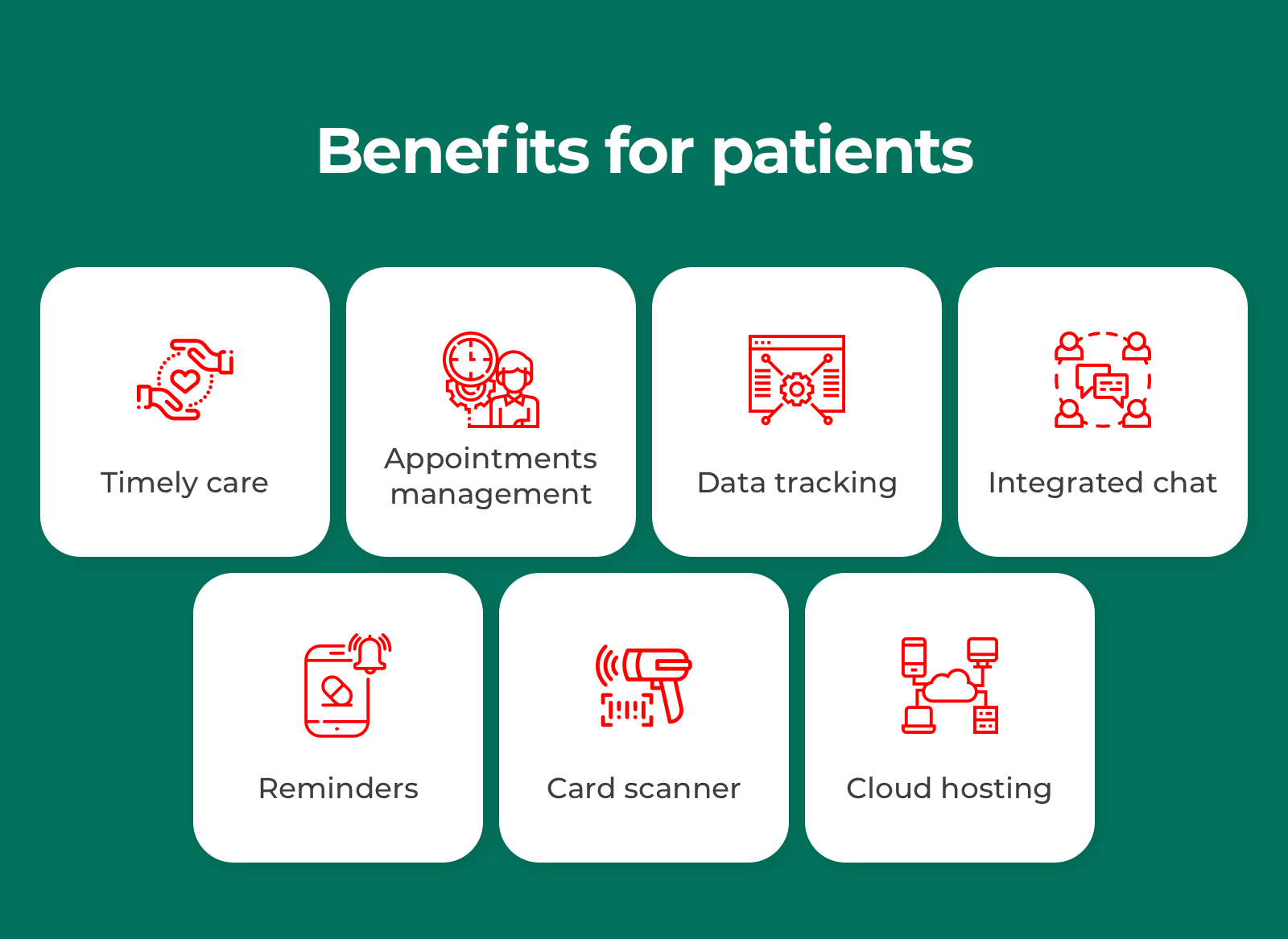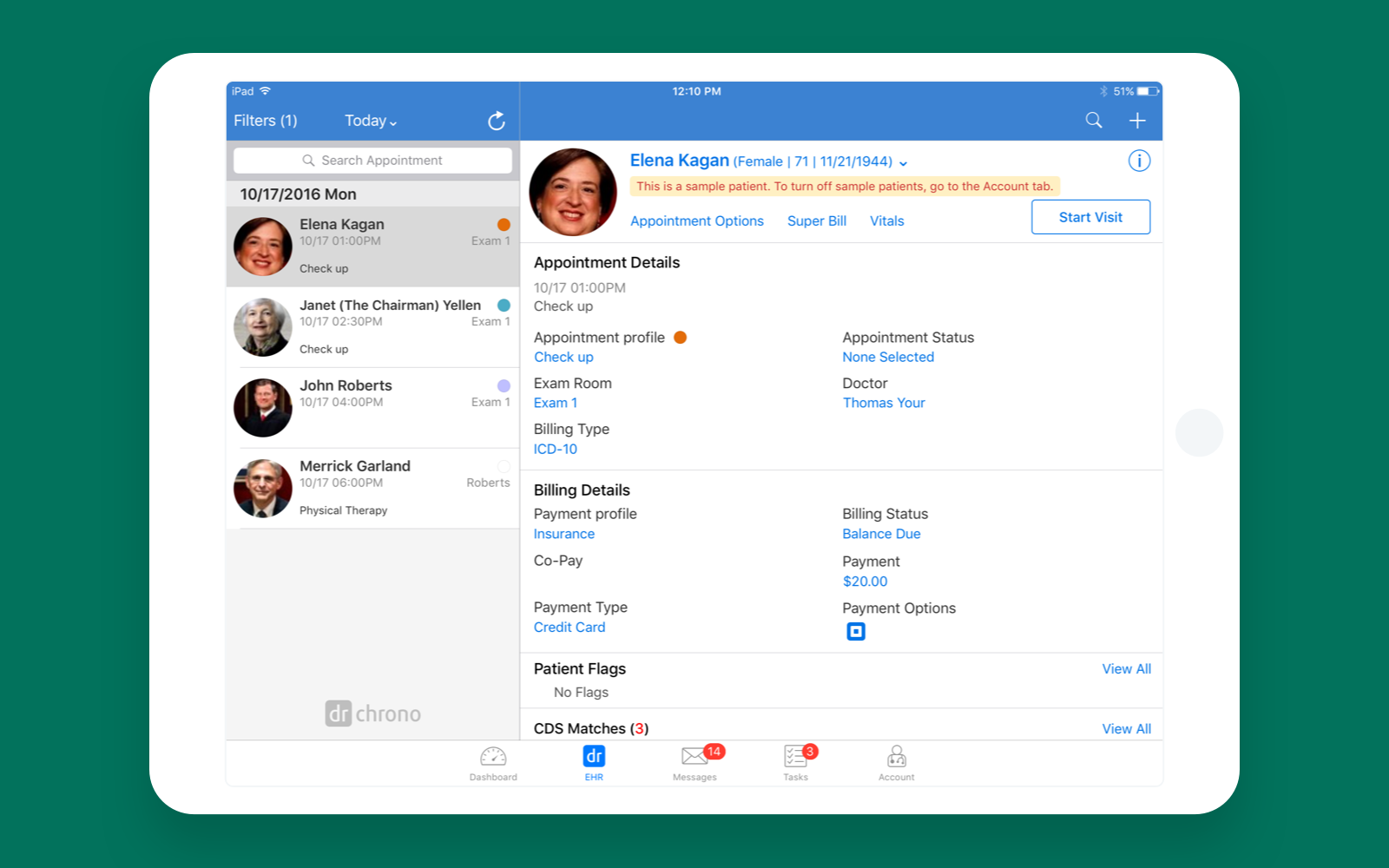How to Build an EHR Software: Benefits, Tips, and Features Revealed
The digitalization of interactions between patients and physicians can put healthcare processes on a new level. Electronic health records are an outstanding solution that improves doctor-patient cooperation and reduces the bureaucracy level. In this article, we’ll go through the benefits of EHR software for healthcare providers, feature lists, and some tips on the development process. Follow this post to know more!
EHR and EMR Software: What’s the Difference?
EHR and EMR are two related concepts. However, they have some differences that we have to highlight.
EMR stands for electronic medical records. Basically, it’s a digital chart that healthcare providers keep in their internal databases. Each EMR keeps a record of different diseases. It means each case requires a separate EMR. An electronic medical record can completely replace paper records and bring some advantages like:
- Easily accessible information at any time
- Notifications about schedules of medical checkups for doctors
- Quick access to test results
- Improved monitoring of the treatment process
However, each practice requires a separate EMR. This inconvenience leads to a pile of records that makes organizational issues more complicated. That’s why electronic medical records aren’t the best option.
EHR stands for electronic health records. In fact, it’s the same digital chart as EMR but with extended functionality and capabilities. Still, EHR software is more effective because it can share data among physicians and laboratories. All information is stored in one file, so there are no issues with data storing and organization. However, it’s better to develop special software that simplifies transferring and modifying EHRs.
Benefits of EHR Software
First, you have to understand what are the strong sides of EHR software. EHR software is beneficial both for doctors and patients. That’s why we’re going to single out benefits for both roles.
1. Benefits of EHR Software for Physicians
We’ll start with highlighting the advantages that EHRs bring to healthcare providers.

- Accessibility. EHRs can be accessed from any point in the world. It helps doctors to transmit data to third-party healthcare providers like laboratories.
- Reliability. Due to an automated backup mechanism, healthcare providers don’t have to worry about losing vital data. Physicians can restore the data from backup storage at any moment.
- Risk reduction. While working with handwritten data, there’s always a chance of misunderstanding other specialist’s handwriting. Digital information, in its turn, is always clear and easy-to-read, so doctors will easily recognize what prescriptions were made by other specialists.
- Treatment history. The patient’s disease history is stored in one place, so it becomes easier for doctors to confirm a diagnosis.
- Marking. Physicians can mark the drugs in the patient’s EHR that should be added or recalled from the treatment process.
- Group management. Physicians can create and manage groups of patients with similar practices.
2. Benefits of EHR software for Patients
Now, let’s go through the advantages that EHRs grant to patients.

- Healthcare on demand. Physicians have 24/7 access to EHRs, so they can help their patients quickly and effectively at any time.
- Schedule management. EHR allows patients to establish and reschedule appointments with doctors. Besides, notifications will remind users about upcoming visits.
- Medical data tracking. Patients can monitor test results, doctors’ recommendations, and prescriptions.
Insurance card scanning. Patients scan their insurance cards via the EHR software and store them in an internal database. - Cloud hosting. All clinical files are stored in the cloud, so they can’t be lost or damaged.
EHR Software Development Tips
As we’re clear with the benefits of EHR software, it’s time to figure out the intricacies of EHR development.

1. HIPAA/GDPR Policies
Since EHR software stores sensitive healthcare data, you have to make sure that your software meets all HIPAA requirements. HIPAA or Health Insurance Portability Accountability Act contains technical and legal requirements that oblige you to provide confidentiality and security of personal data.
GDPR is a set of regulations about data privacy and security in the European Union. Healthcare providers should notify users that the processing of their private data is done according to GDPR requirements.
2. EHR System Certification
Mind that EHR software should be officially certified. Users need to be sure that your software is legal and doesn’t threaten their private data.
- EHR software in the US should be certified by ONC-ATCB (Office of the National Coordinator – Authorized Testing and Certification Bodies). When using certified products, patients and healthcare providers feel more confident about the EHR system.
- In the EU, your software should undergo EuroRec certification. Basically, it’s the same thing as ONC-ATCB, but in the territory of the European Union.
3. Compliance With Up-to-Date protocols
Healthcare private data safety is a top concern when developing an EHR system. That’s why there are some standards that regulate the exchange of healthcare data. HL7, CCD, CCR, CCA, and other protocols regulate the data transfer.
Basic Features for EHR Software
Basic features of any software shape the skeleton of the service. EHR systems without the following features can’t be compatible with the market. Later on, with more investments, you can develop new custom features to satisfy all needs of your customers. Now, let’s take a closer look at each feature.
1. Document management
A basic feature that allows physicians to manage patients’ treatment history, test results, and other reports that help to track the patient’s health condition.
2. Task management
Task management allows doctors to optimize their workflow and improve productivity. Less time spent on planning lets physicians focus on the treatment process.
3. Patient profile
This page displays patients’ personal information, treatment and disease history, and other general information about the patient.

4. Cooperation with laboratories
It will be easier for physicians to gather test results if you grant the app access to laboratories. Time plays a vital role in healthcare, so do your best to optimize all processes.
5. Charting
Digital charts help doctors to automate a number of handwritten tasks. Personnel spends less time filling in patient charts and searching for the same information in the future.

6. Text chat
Physicians can communicate with patients at any time. In case the patient needs to clear up some details on the medicine or treatment process, they can contact the doctor and get instant feedback.
7. Scheduling
Doctors should be able to manage appointments and send reminders to patients about upcoming meetings.
Also, don’t forget that EHR software should have an attractive and straightforward user interface. Columns, tables, and charts are required for better data visualization. Finally, your app should be online 24/7 because medical information is necessary at any time.
Wrapping Up
To sum up, EHR software is a complicated product with its obvious benefits and a number of pitfalls. Surely, EHR systems may help many patients and healthcare establishments. However, the development is pretty stretched around. If you’re planning on building an EHR system, it’s better to search for a dedicated development team.





































